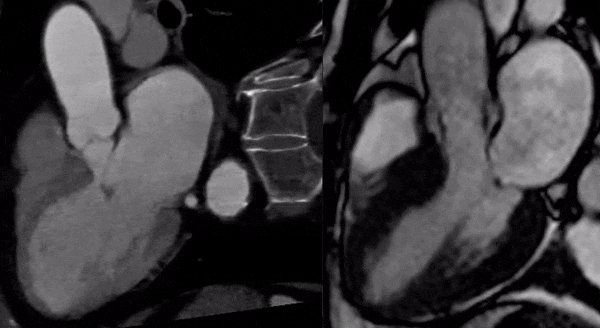Cardiac MRI
CALL TO BOOK AN APPOINTMENT
813-870-1747

What is a Cardiac MRI?
- Chamber sizes and wall thickness
- Left and right heart function
- Assessment of regional wall motion abnormalities
- Assessment of valvular function
- Assessment of heart failure
- Assessment of obstructive coronary artery disease
(when added to stress testing) - Presence of heart damage (heart attack)
- Presence of myocardial diseases (interstitial heart disease)
- Presence of myocarditis
- Assessment of infective endocarditis
- Assessment of pericardial diseases
- Assessment of cardiac masses
- Assessment of congenital heart disease
- Evaluate the effectiveness of your medical or surgical
treatments - Screen and follow patients who receive cardio-toxic
medications during cancer treatment - Detection of serious problems with the thoracic and
abdominal aorta - Detection of serious problems with the pulmonary arteries
- Detection of serious problems with the lungs, mediastinum,
and esophagus
Are There Risks
Involved with MRIs?
- Artificial heart valves
- Implants
- Pins, plates, screws, and staples
- Stents
What Can I Expect with A Cardiac MRI Procedure?
During Testing
As with a CT scan, you lie on a table that moves through a very large doughnut-shaped scanner. The MRI technician controls the movement of the table into the scanner.
As long as you have removed all metal, jewelry, body piercings, and watches, there’s little risk to you.
The machine makes a variety of noises as it functions, including whirring sounds and loud thumps. You may be offered earplugs or headphones.
You may be asked to hold your breath during parts of the exam to provide clearer images.
There’s no feeling or sensation.
Both the electromagnetic and radio waves pass harmlessly through the body.
After
The entire procedure may take up to 90 minutes, but there’s no effect on you, and you can drive safely home after the procedure.
If you don't happen to see yours listed, please call our office to speak with one of our knowledgable staff members.




